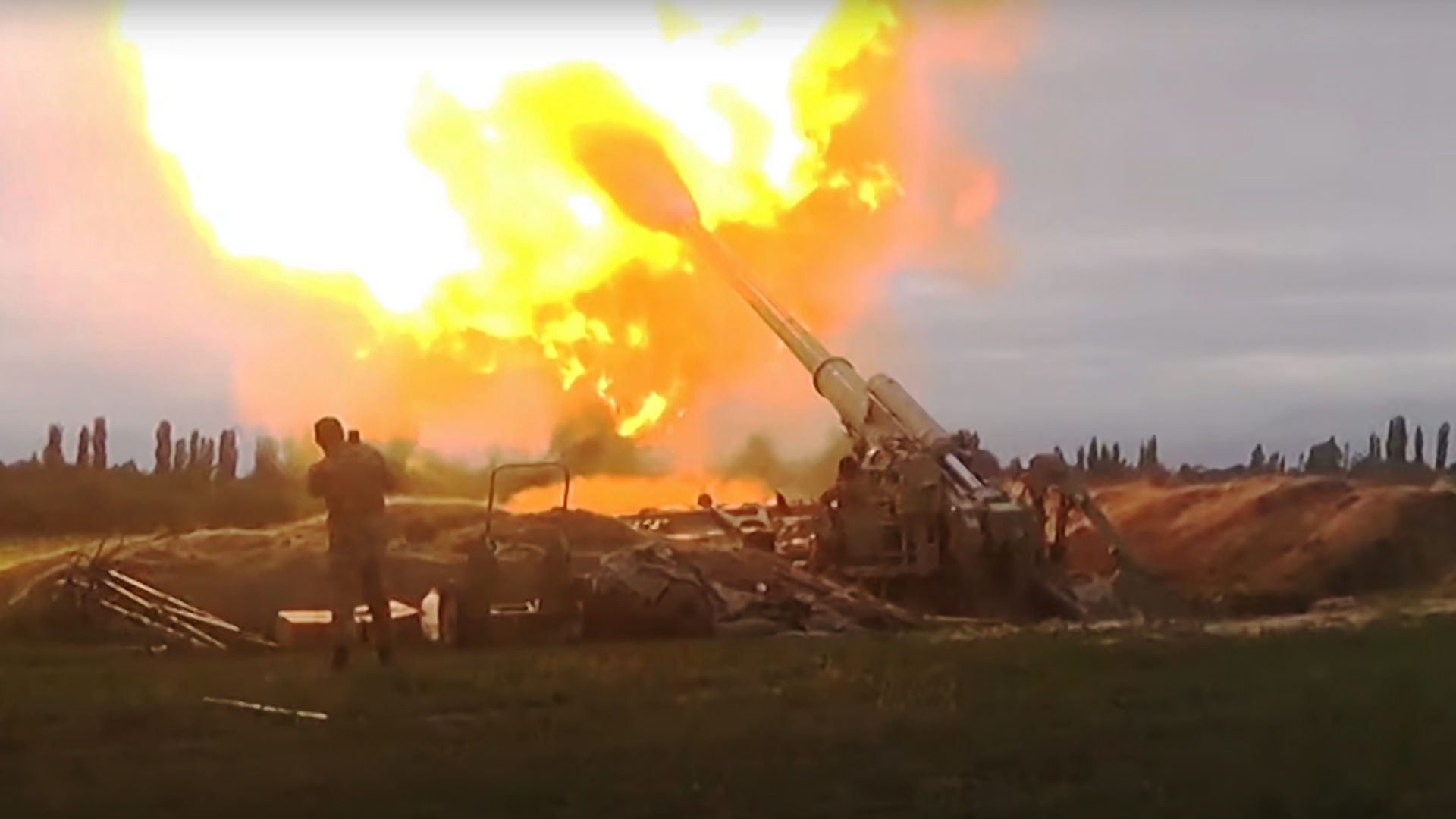The guests of the episode of the program "Beyond the News" ruled out reaching any settlement or understanding of the armed conflict that erupted - on Tuesday - again between Azerbaijan and Armenia in the Nagorno-Karabakh region, after Baku announced the start of a military operation to "combat terrorism, and remove the Armenian military and political structure in the region."
Ali Bakir, a professor of international relations at the Ibn Khaldun Center at Qatar University, believes that the conflict will not be resolved unless Armenia recognizes the sovereignty and territorial integrity of Azerbaijan and withdraws its separatist militias from the internationally recognized territory, and pointed out that there is an Azeri space to move unless pressured by Moscow and Washington.
It is believed that the expansion of the Azeri operation is linked to regional and international powers, especially the Armenian side, which may be incited by Iran to escalate, in addition to the presence of Russian military bases in Armenia, in addition to Turkey's explicit support for Azerbaijan, at a time when Europe is trying to be balanced, but does not pressure Yerevan to reach a complete solution.
Lawrence Brewers, a researcher in the Russia and Eurasia program at the Royal Institute of International Affairs (Chatham House), supported Bakker's argument and ruled out any settlement or understanding, but noted that things seem difficult on the border and on the humanitarian side, although the Azeri strikes targeted military points in the region.
Not content with this, but also warned of chaos in Armenia with the possibility of Russian militias intervening in the Armenian situation, and pointed out that the Russian approach depends on postponing talk about the security of Karabakh, as Moscow's ability lies in pressuring the two countries through the continuation of the conflict.
International contexts
According to Brewers, Russia is an active player and is trying to present itself as a guarantor of the 2020 ceasefire agreement, and it also has interests through its desire to return to the crossing through Armenia, which was talked about in Article IX of the 2020 agreement.
There is a Russian track for negotiations between Baku and Yerevan, while the European Council leads another track in cooperation with Washington, at a time when Turkey strongly supports Azerbaijan.
In the midst of this scene, Iran seems to be the most affected by the outcome of the Karabakh war in 2020, as it led to the rise of Azerbaijan regionally, so Tehran tried - according to Bakir - "to raise the pace of tension with Baku through military exercises or media propaganda, in addition to inciting Armenia not to go to comprehensive reconciliation."
The professor of international relations at the Ibn Khaldun Center at Qatar University stressed that Europe needs Azerbaijani gas in light of the repercussions of the Russian-Ukrainian war on energy markets and its abandonment of Russian gas.
As far as Russia is concerned, it has tried to take advantage of Azerbaijan and Armenia, and Baku has moved towards easing the weight of the relationship between Moscow and Yerevan by increasing trade and buying Russian weapons.
What causes what happened?
Returning to the reasons for the renewed armed conflict, Bakir explains that the tension has not disappeared, but has been escalating since the war of Azerbaijan's liberation of the region, revealing that there are direct reasons for what happened, which are the killing of a number of Azerbaijani citizens by landmines, and then the killing of members of the Azerbaijani Ministry of Defense by mines as well.
The indirect reason, according to the professor of international relations, lies in Armenia's continued violation of the tripartite agreement that put an end to the war in 2020 under Russian auspices, as Yerevan did not abide by its commitments by inciting separatist movements to independence through the elections that took place, as well as withdrawing their forces from the region and opening corridors between it and Azerbaijan.
In a related context, Brewers was not surprised by the developments on the ground, and said that the 2020 war ended in an Azeri victory, but it was incomplete, believing that its new military operations are aimed at giving Armenia a deadline to end the control of local militias, hand over their weapons and the lack of need for Russian peace forces.

